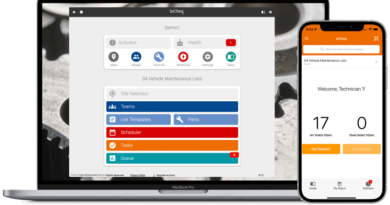How Many Jobs Are There in Consumer Non-Durables?
Consumer non-durables (CND) is a broad industry that includes companies that produce goods such as food, beverages, cosmetics, and pet care. The consumer non-durable industry doesn’t manufacture durable goods like cars or appliances. Instead, we can think of CND as products we use every day — for example, soap, toothpaste, and aspirin. According to the U.S Department of Labor’s Occupational Outlook Handbook , there are over 100 different jobs available in the CND sector alone. However, some of these roles are more common than others. In fact, many workers in this field have relatively similar jobs with different titles. For example: There are many people who work as chemists and materials scientists — but they all have different names depending
What Jobs Are Available in the Consumer Non-Durables Industry?
If you’re interested in jobs in the CND industry, you have many options. The most common jobs in this field include: The above list is just a sample of the many jobs in the CND industry. These jobs cover everything from operations to finance and market research. Like many other industries, there are many job titles for workers who perform similar tasks. For example, many product development specialists are also known as industrial designers. And many product managers are also known as merchandise managers.
Chemist/Material Scientist
If you’re interested in chemistry, you may be able to work as a chemist or a material scientist. As a chemist, you study how chemicals interact with each other, as well as their properties and uses. A material scientist, on the other hand, studies and researches the properties of various materials. Depending on the company, you can work with a wide range of materials, including metals, polymers, ceramics, and polymers. As a chemist or material scientist, you might be responsible for: All of these tasks are valuable to companies because they help them create products that are safe, effective, and aesthetically pleasing. If you become a chemist or a material scientist, you may be involved in everything from creating new products to testing the safety and effectiveness of existing ones.
Quality Control Technician
Companies create new products all the time. However, they occasionally have quality control issues. If there is an issue with a product, a quality control technician investigates and determines the cause of the problem. Additionally, a quality control technician oversees the testing of products to ensure they meet quality standards. In some cases, the quality control technician is responsible for creating the testing protocols. This job can be quite challenging because you need to act as a detective. You’ll need to figure out the cause of the issue and report your findings to your supervisor. A quality control technician typically reports to the quality assurance (QA) manager. This person manages the quality control department of a company. Depending on the company, you may be responsible for testing raw materials or finished products. Or, you may oversee a wide range of quality control activities.
Food Technologist
Food technologists apply scientific knowledge to a variety of processes, such as food production, preservation, and packaging. You may work in a lab, a factory, or a food research facility. Some food technologists collect data and make recommendations. Others oversee lab technicians and ensure they collect accurate data. Food technologists often specialize in a particular food product or processing methods, such as cheese production or canning. If you become a food technologist, you may be responsible for anything from collecting data to creating new products. For example, you might be responsible for finding the best way to process peanuts. This job can be quite challenging because it requires a lot of scientific knowledge. A food technologist typically reports to the manager or owner of a company. This person manages all aspects of the business. Depending on the company, you may be responsible for analyzing food samples or creating new products, such as peanut butter.
Merchandise Coordinator/Merchandising Specialist
This role is common in large retail companies such as Walmart, Target, and Amazon. A merchandise coordinator or merchandising specialist analyzes data to determine the best way to merchandise (i.e. display) products in a store. A merchandise coordinator is responsible for a wide range of tasks. For example, you may be responsible for creating floor plans and deciding where to place products in the store. You can expect to work with a wide range of data, including customer purchasing habits and sales data. As a merchandise coordinator, you may report to the manager of the retail store. This person manages all aspects of the store, including the display of products. Depending on the company, you may be responsible for creating detailed floor plans and managing a team of people.
Market Research Analyst
A market research analyst studies the buying habits of consumers. This person may also create surveys and interview people. Their goal is to discover what consumers want or need in order to create new products or services. As a market research analyst, you may be responsible for everything from designing surveys to analyzing the data. A market research analyst typically reports to the vice president of marketing at a company. This person manages all aspects of marketing, including data analysis and product development. Depending on the company, you may be responsible for creating surveys, interviewing people, and analyzing the data, or all three tasks.
Product Development/Designer
This role is common in tech companies such as Apple, Google, and Samsung. As a product designer, you develop new products by combining engineering and design. A product designer usually has a degree in industrial design or engineering. Depending on the company, you may work in a lab or with a team of engineers and product designers. As a product designer, you may be responsible for everything from creating the first prototype to creating a final product. Or, you may report to the engineering manager. This person manages all aspects of engineering for a company.
Supply Chain Manager/Logistics Manager/Recruiter
Supply chain managers oversee the entire process of getting a product from the factory to the customer. They create long-term manufacturing plans, manage inventory, and ensure products get delivered on time. A logistics manager has the same duties as a supply chain manager. However, they mainly focus on transportation, such as the movement of goods via truck, train, or plane. A recruiter is responsible for finding the best talent for a company. A supply chain or logistics manager typically reports to the vice president of operations. This person manages all aspects of operations, including supply chain management and logistics. Depending on the company, you may be responsible for managing a wide range of duties, such as inventory control and employee hiring.
There are many jobs available in the consumer non-durables industry. If you’re interested in this field, you can explore many different roles. Economy-wide, many job openings come from retirements, new technologies, and increased demand for products. If you’re interested in working in this industry, you can explore many different job titles.




